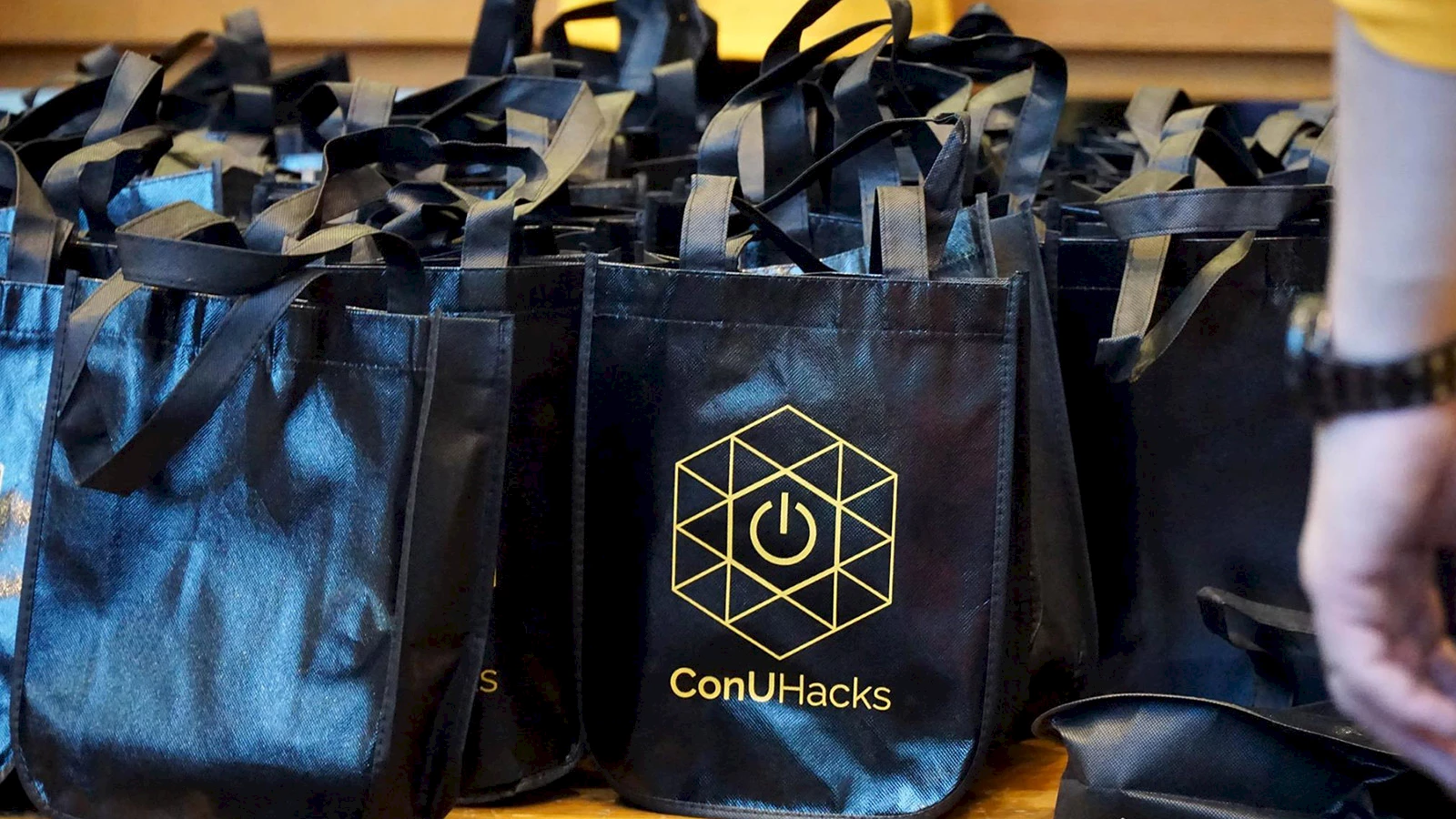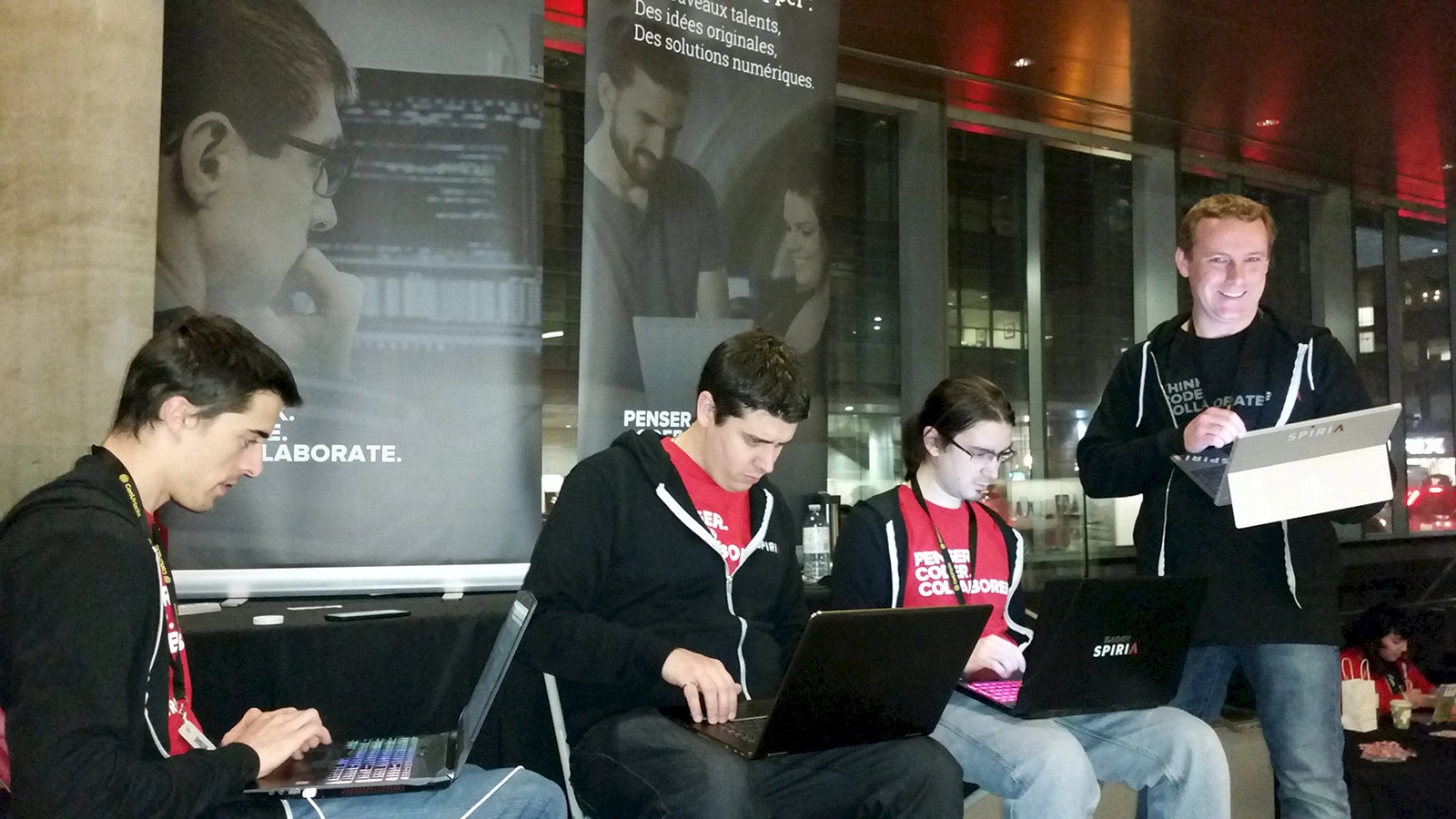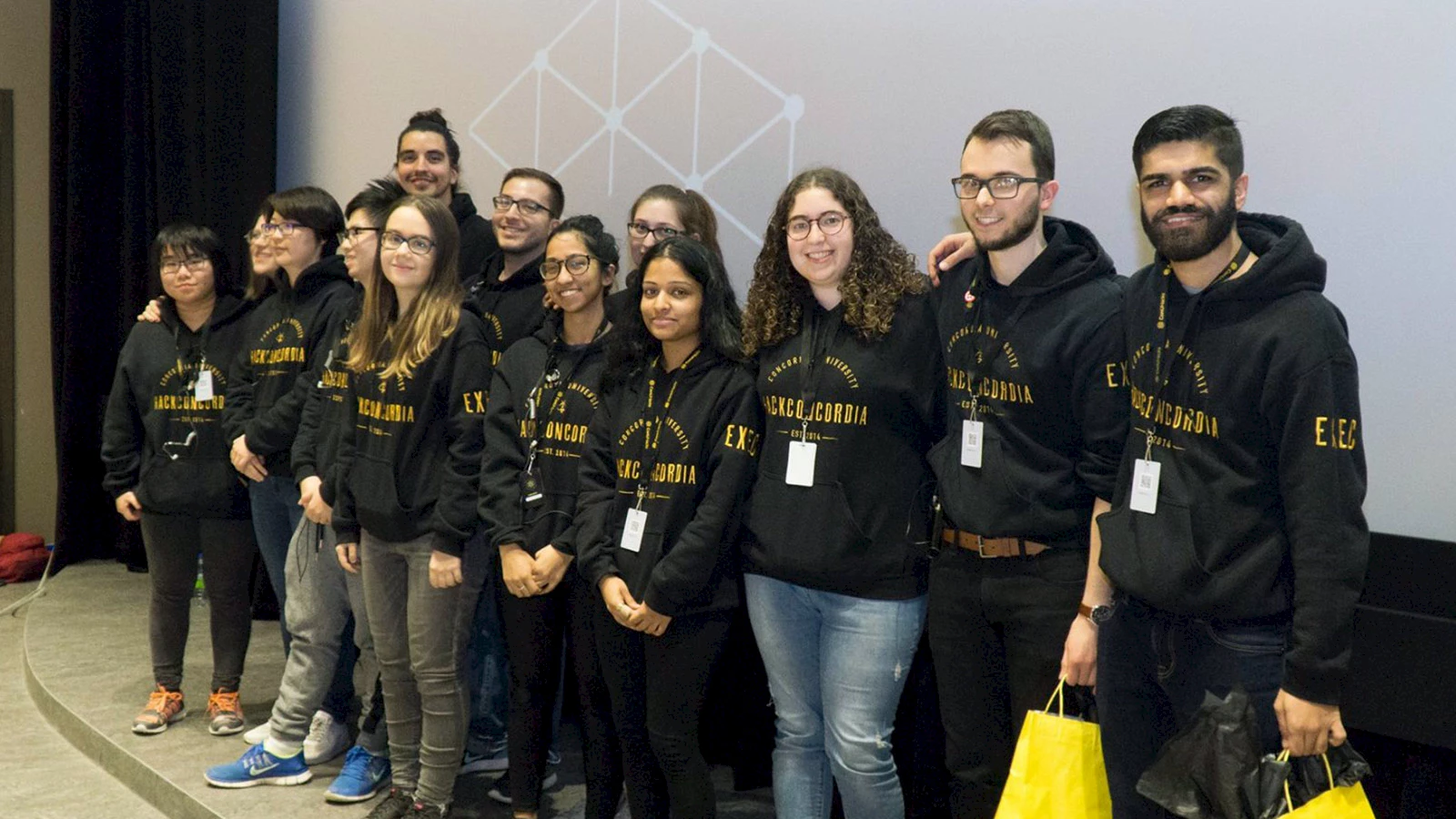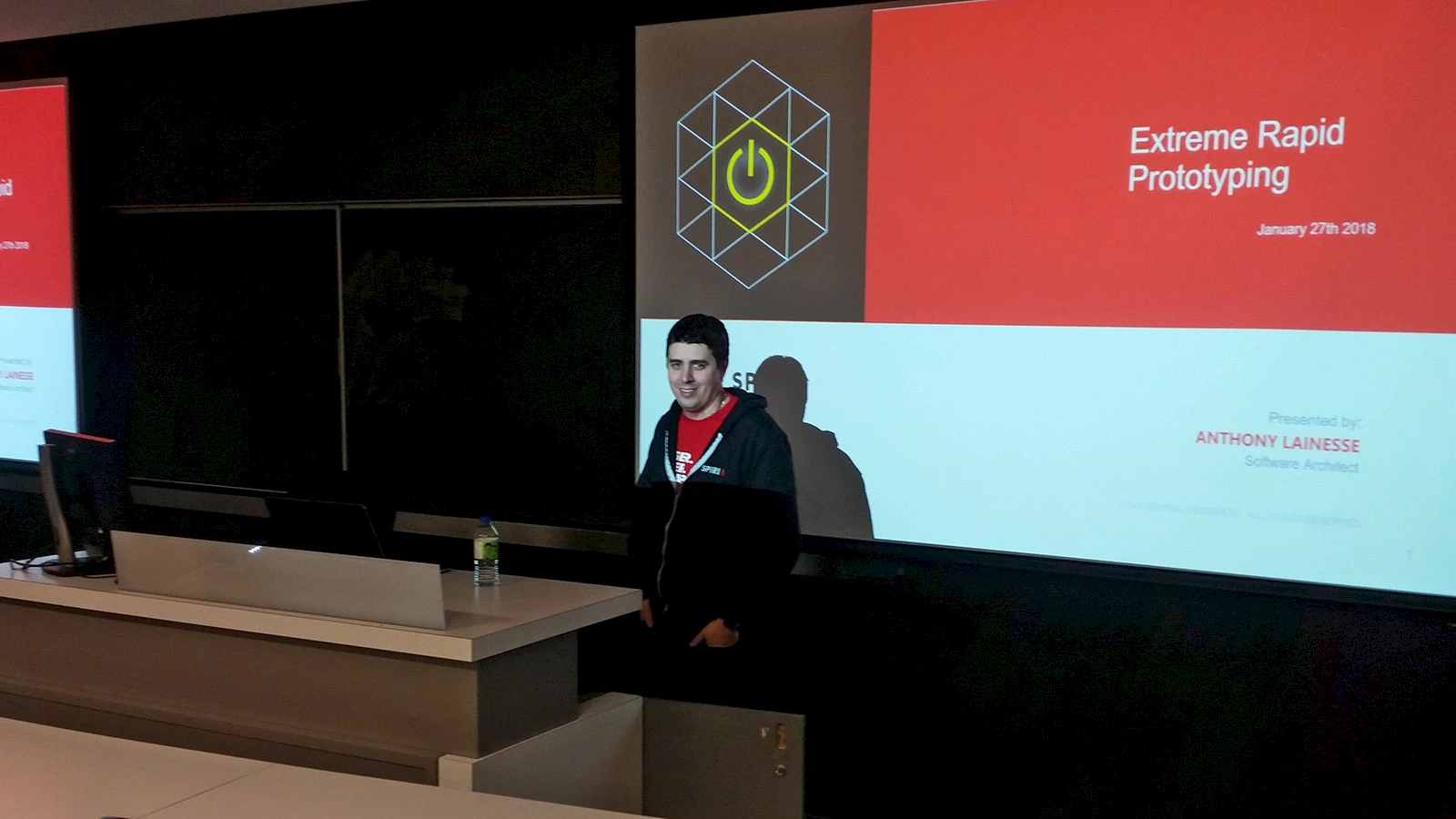The lowdown on ConUHacks

ConuHacks is a yearly event that takes place at Concordia University, in downtown Montréal (Québec). This 24-hour hackathon is an opportunity for more than 650 students from all over North America to excel by working together, and to meet industry leaders. The event is open to all university students who are passionate about using technology to create. Spiria is proud to support the event and take part in each edition of ConUHacks.
As part of the hackathon, students work together in teams of four, for 24 hours straight, on a software project (or “hack”). No technology is mandated, and any type of application is permissible.
Corporate mentors are available throughout the event to answer questions and to help students carry out their projects. They also offer training workshops that provide students with an opportunity to discover new techniques or to learn new skills. At the end of the event, all the rival teams provide demonstrations of their hacks, and the corporate mentors choose the winners. This year, we sent a shock team to ConuHacks with three mentors, developers Anthony, Francis and Guillaume, and talent scout Sébastien (these hackathons have in fact become informal job fairs for computer science and software engineering students; they provide businesses with the opportunity to spot up-and-coming young talent and for students to get a better understanding of the reality of business.) In addition to Spiria, ConUHacks is sponsored by the Government of Canada and more than 25 major businesses such as Ericsson, Sun Life, Desjardins, IBM, Shopify, Ubisoft, Morgan Stanley, Nuance and Genetec.

Team Spiria.
The teams that took part in the 2018 edition presented 110 projects before a jury that was impressed by the high calibre of the competition, making it one of the most remarkable hackathons in the world. But it’s also remarkable due to the high number of female participants, which sets it apart from most others. “Many women took part, both as participants and as volunteers for the organization. I would say that at least one third of participating students were female,” said Guillaume, who shared his impressions on the experience:
A thoroughly rewarding experience.
“First of all, I would like to thank all the student volunteers who could have participated in the competition, but who instead preferred to donate their time to make this event possible. There were very many of you and we greatly appreciate the high degree of organization. Next, being able to share one’s experience and to provide advice to the students is an extremely rewarding experience. What are the priorities to choose? Which skills and knowledge are really necessary? How do you stand out with out-of-class projects? And even explain to some people that being an introvert like me isn’t a hindrance, and that you can learn to become more comfortable with others… The proof: that crazy day, when I answered questions from over 70 people, didn’t kill me! On the project side, I was mostly sought out to answer questions about React and Unity, as well as Android Studio. It was interesting to help teams to set a goal, and to define a Minimum Viable Product. Once the plan was made, they were much more relaxed, because they had an achievable project that they were able to finish and present the next day, while also having a list of possible add-ons if time permitted. One of the pointers I gave was that it’s better to present a simple project with a backlog of features rather than an incomplete project with a huge number of basic features that weren’t finished, which wouldn’t be presentable.”

The HackConcordia organizing team.
Francis, who was a first-timer, felt the following about his ConUHacks experience: “In three words: organized, vibrant and dynamic. It was an enriching and stimulating experience, not just for me but also for the students. Since Spiria is less high profile than IBM or Ubisoft, I made sure to tell the students about the company and our amazing corporate culture. Between these presentations and the mentoring, the day passed super quickly. And when I had to leave, Guillaume kept at it for another hour, going around to the teams and offering them a last chance to squeeze him for expertise, Sébastien stayed at the booth to represent Spiria right to the end, and Anthony was going to lead a workshop on Google’s Firebase at the end of the evening! I left the experience a winner, even if I didn’t compete!”
In three words: organized, vibrant and dynamic.
A winner, how so? “When you spend a whole day explaining the company’s goals and your role in achieving them, you have to really analyze how you perceive your work. It confirmed to me that I’m in the right field and that I enjoy what I do. If, one day, you feel your love of programming start to wane, I strongly urge you to take part in a programming marathon to rekindle this inner flame through the next generation. The students’ willingness to participate in this challenge, and the way their eyes shine when they tell you about their experience, simply makes you want to go sit in front or your computer and code your heart out.”

Anthony Lainesse.
Anthony, Francis told us about your presentation, how did it go? “When Sébastien offered me the opportunity to speak at ConUHacks, I jumped on it. I decided to do a conference-workshop to allow the students to follow me in a programming exercise. It consisted of doing a quick prototype using React and Firebase. I chose a ToDo application like many other technical demos, but mine had a trick: since I was presenting to young adults, I was pretty sure that they were familiar with Tinder. In other words, in my version, the tasks are cards that are swiped to the left to reject them, and to the right to complete them. The presentation went over really well, but I found myself in the familiar trap of having too much content, so I had to shorten the end of the presentation because I ran out of time. Lots of students came by afterwards and wanted to learn more. Overall, it was an enriching experience and I would really like to repeat this presentation, with a few tweaks, for sure.”
—
Thank you to Guillaume Demers-Loiselle, Francis Poulin, Anthony Lainesse and Sébastien Lauzon for their contributions to this article.
